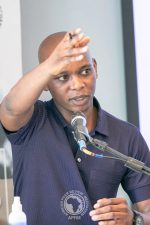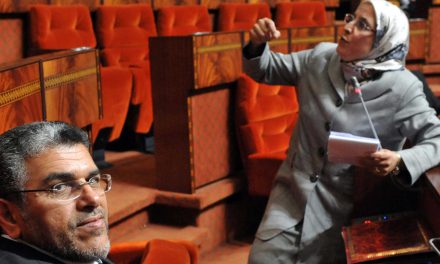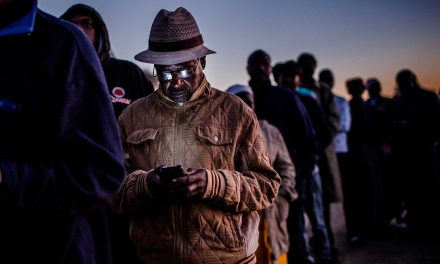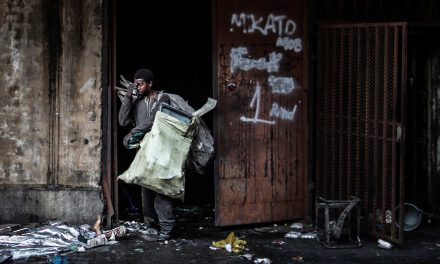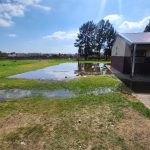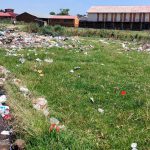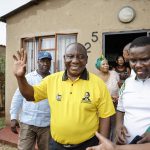Since the establishment of the United Nations (UN) in 1945, the global multilateral institution has always paid attention to the plight of young people through its agencies such as the United Nations Educational, Scientific and Cultural Organization (UNESCO), United Nations International Children’s Emergency Fund (UNICEF), United Nations Population Fund (UNFPA) and the International Organization for Migration (IOM).
However, in September last year, the UN made a historic reform by establishing a UN Youth Office (UNYO) with a mandate to bring issues affecting youth to the centre of UN programmes. The formation of the UN youth office is critical for the African Union (AU) and its member states given Africa’s demands for greater representation and decision-making powers at the UN through the Ezulwini Consensus.
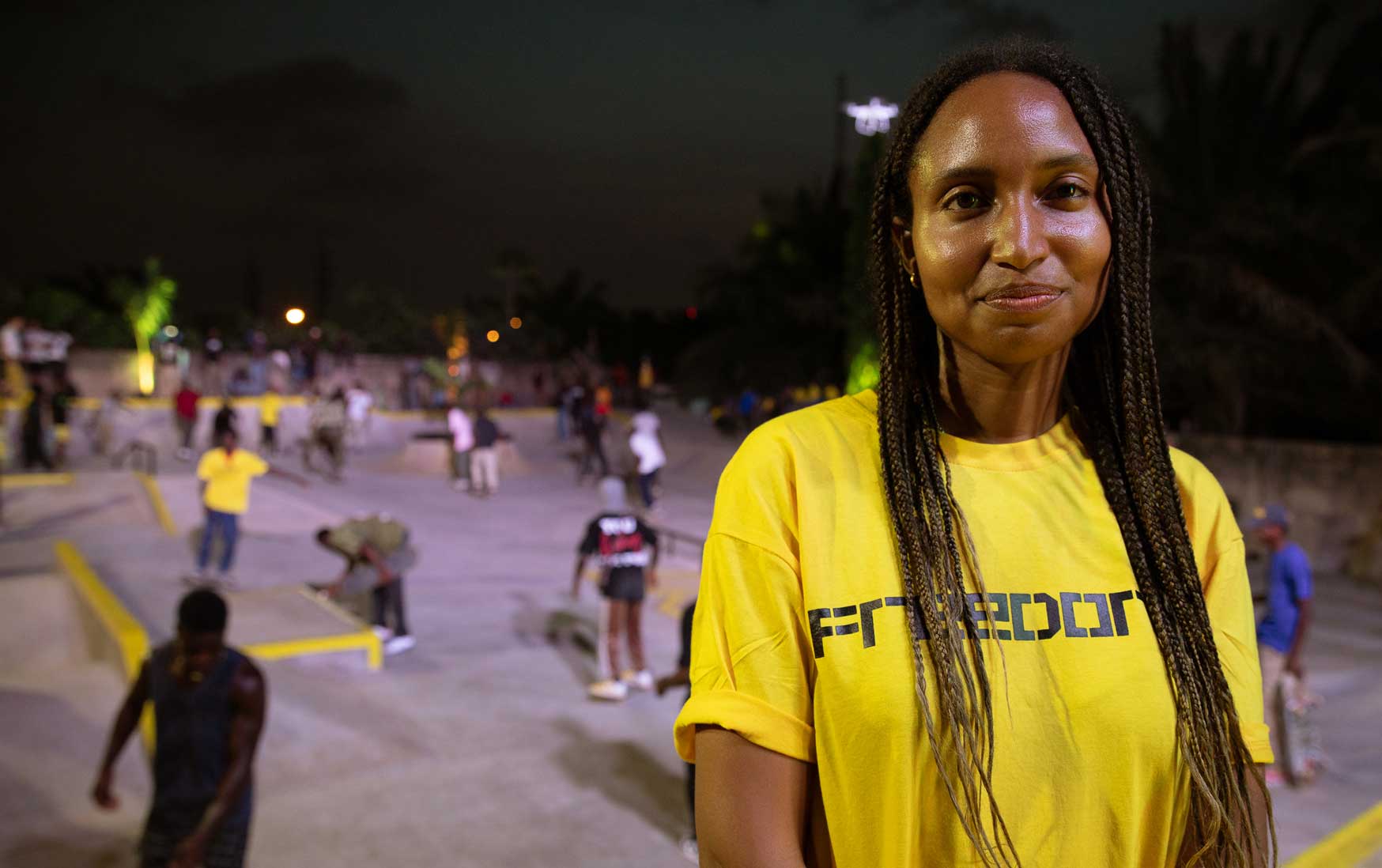
Sandy Alibo, founder of Surf Ghana and Freedom Skate Park, at the opening of the first skate park and a recreational centre created by the youth in Accra, Ghana, in December 2021. (Photo: Nipah Dennis/AFP)
This article argues that Africa, through the AU, should consider getting its house in order by consolidating and coordinating a common youth agenda ahead of the operationalisation of the UNYO. The AU as the leading African multilateral institution with a mandate of developing Africa – through the nexus of peace, security and development – is able to consolidate its youth agenda by first undertaking a thoughtful appraisal of the achievements and shortcomings of the AU, its organs/agencies, and member states in implementing youth programmes and initiatives. This appraisal can be done by evaluating the impact of the African Youth Charter (AYC), which came into force in 2006.
Global challenges such as peace and security, sustainable development, respect for human rights, coordination, and accountability on the advancement of youth empowerment are expected to rank high on the agenda of the UNYO when the office becomes operational. Challenges such as peace and security relatively affect Africa more than any other region in the world; therefore it is only fitting that African stakeholders pre-empt the opening of the UNYO by uniting under one banner and requesting the new office to respond to the common needs of Africa’s youth. AU multilateral institutions working in youth development are recommended to make efforts in influencing the direction the UNYO will take in dispensing its mandate.
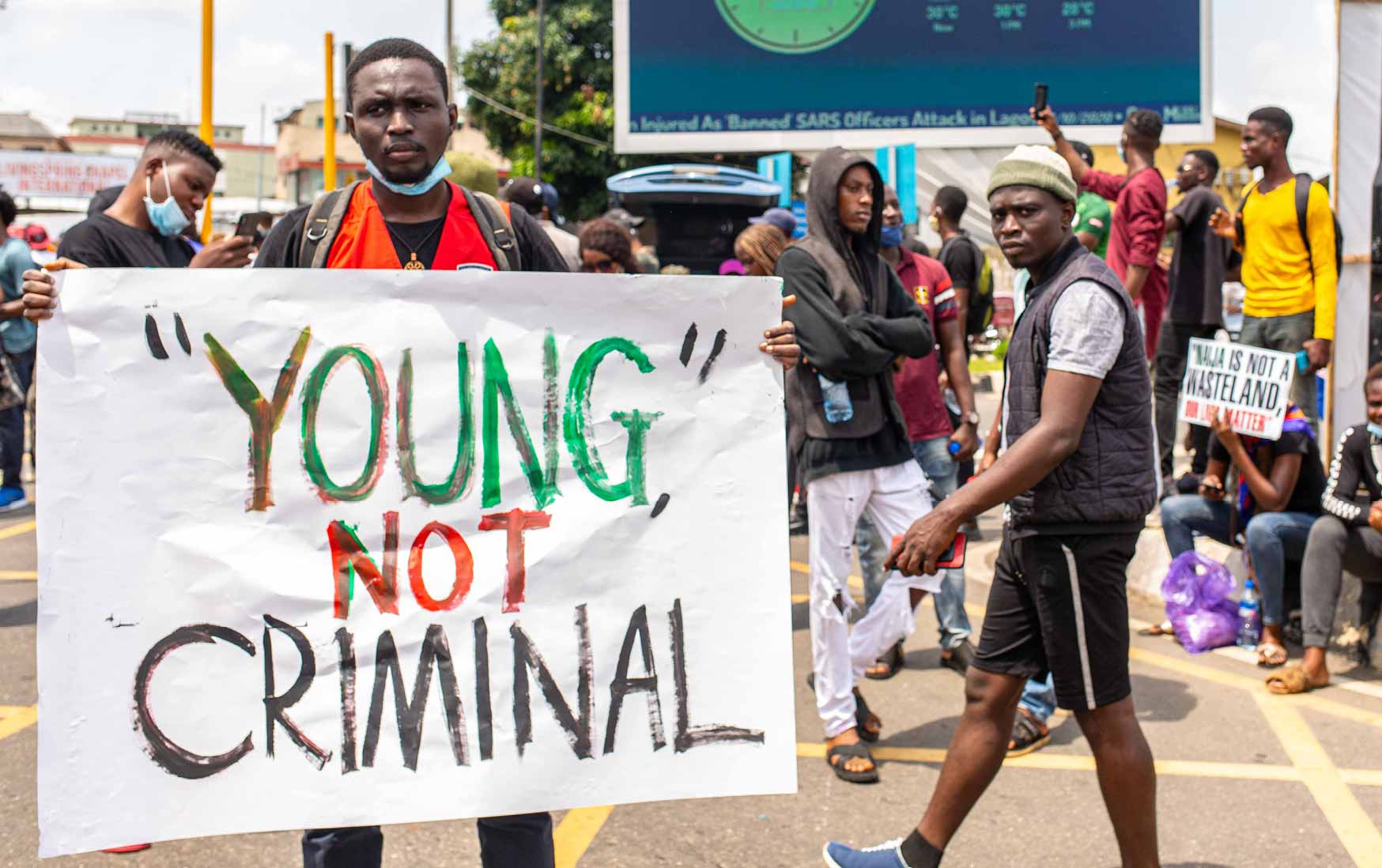
A Nigerian youth displays a placard in protest against the unjust brutality of the Nigerian police force unit named Special Anti-Robbery Squad (SARS) in Lagos in October 2020. (Photo: Benson Ibeabuchi/AFP)
Africa has experience in youth development and empowerment, including Sierra Leone’s commendable efforts in rehabilitating former child soldiers back into society, which the UNYO could use as a template in responding to challenges youth face in other regions.
Questions that must be asked are:
- Will the UNYO prioritise fostering synergies with the AU’s Agenda 2063, focusing on the nexus between development, peace, and security?
- Will sufficient consultations with legitimate stakeholders take place or are they planned?
- Are current AU and UN youth development frameworks sufficient in supporting member-state programmes and initiatives to solve the socioeconomic challenges that African youth face?
Dr McBride Nkhalamba, the acting director of governance and specialised reporting at the African Peer Review Mechanism (APRM), told Africa in Fact: “In my estimation, there have been limited conversations about what the youth dividend actually means for Africa. Huge emphasis is made on natural resource capital but much less on human capital, which is the youth dividend. If Africa does not invest in developing its youth dividend it will eventually culminate in a youth liability. In this regard, all efforts geared at coordinating youth engagement and participation at the UN must have clear and deliberate efforts to develop Africa’s youth dividend.”
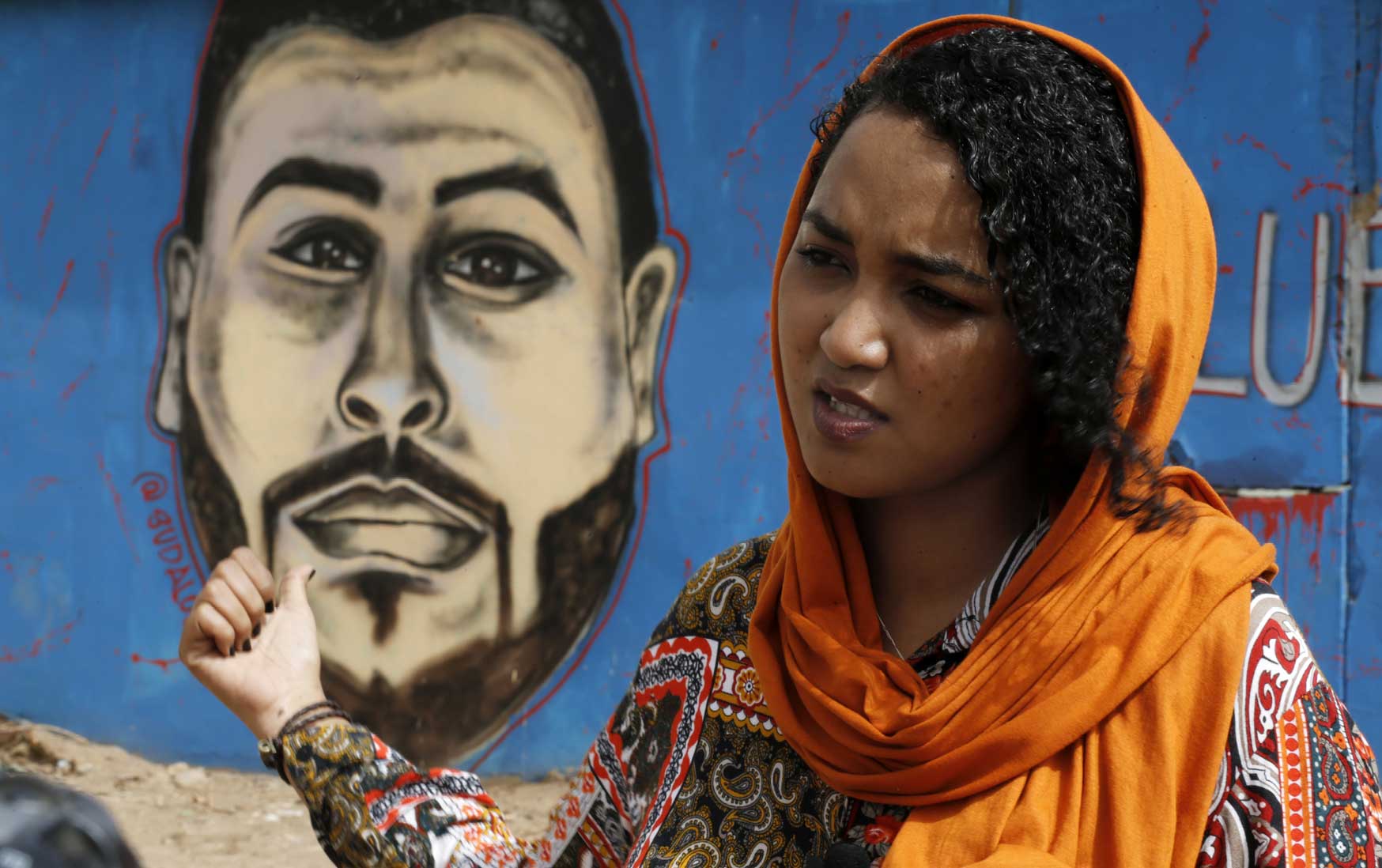
Sudanese activist Eythar Gubara pictured in Bahri in the capital, Khartoum’s northern district in July 2019. (Photo: Ashraf Shazly/AFP)
By 2030, young Africans are expected to make up 42% of the world’s youth. The operationalisation of the African Continental Free Trade Agreement (AfCFTA), which is projected to increase trade amongst African countries and uplift the lives of ordinary citizens, especially the youth, should result in an increase in Africa’s bargaining power in global international relations.
It is necessary to acknowledge the progress that Africa has made through the AU and its policy organs in recognising the urgent need for getting the youth into the mainstream, especially in policy formulation. Lately, the youth agenda has received significant attention, including policies positioning them as key role players in shaping African democracy, governance, development, human rights, peace and security.
Globally, the AYC and Ibero-American Youth Convention are the only two notable international legal instruments articulating the rights of youth. Africa, therefore, is strategically positioned to share insights and institutional practices with the UNYO in developing normative frameworks for youth development.
The signing, ratification, and domestication of the AYC has been one of the fastest of all AU governance instruments. Burundi is the latest AU member state to accede to the charter, as recently as January this year.
While these developments should be applauded, the critical components in the implementation of the AYC such as youth employment and representation in government lag behind. AU member states and multilateral institutions should not only legislate their problems away but rather focus attention on the domestication of its governance instruments.
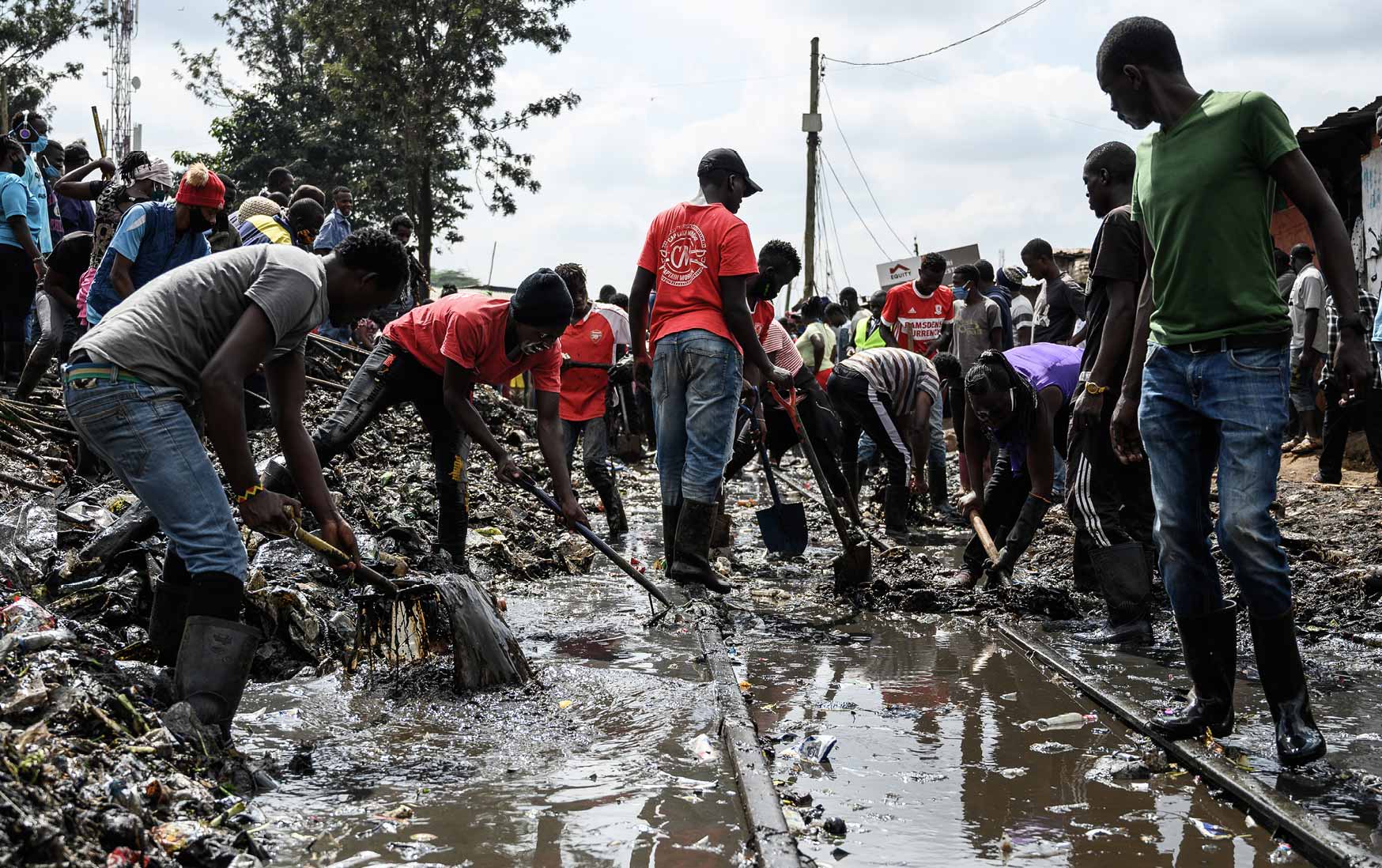
Youths hired by Kenya’s National Youth Service (NYS) remove mud from train tracks in the Kibera slum, Nairobi, June 2020. (Photo: Gordwin Odhiambo/AFP)
The AYC has the political support of AU heads of state and government, who dedicated 2009 – 2018 as the African Youth Decade. However, the decade plan of action, with its multi-sectoral and multi-dimensional engagement strategy shows few results.
The AU also established the Youth Envoy’s Office in 2018, which has become a central point for the voices of Africa’s young people. Through the envoy’s office, more than 25 African countries have been visited through the ‘Listening Tour’ and over 70 public engagements have been organised for African youth and those in the African diaspora. These achievements are admirable, but they remain only an advocacy channel due to the lack of resources. A more synthesised effort is necessary, through AU mechanisms and organs, in the decentralisation and materialisation of youth development policies at a national level.
Over and above the AU and its structures, the UNYO, working with them, should make deliberate, targeted and coordinated engagements with National Youth Councils (NYC) in upscaling the implementation of the AYC. Agenda 2063 and the achievement of the UN Sustainable Development Goals (SDGs) require youth who are well-informed and equal partners in the execution of these policies. In this regard, the AU Youth Commission developed the African Plan of Action in Youth Empowerment (APAYE), which comes to an end this year.
The expiry of APAYE is an opportunity to conduct a thorough review of challenges hindering Africa’s youth development such as weak policy implementation, inadequate engagement with young people, a lack of reporting and available data on youth empowerment programmes, poor coordination amongst stakeholders, and leveraging development partners’ support.
As Patience Masua, the youngest member of parliament in Namibia told Africa in Fact: “The central focus of the UN Youth Office should, without any debate, be the creation of economic opportunities for young people in the African region. This should be done through complementing instruments such as the AfCFTA, which intend to (in principle) make Africa economically borderless.”
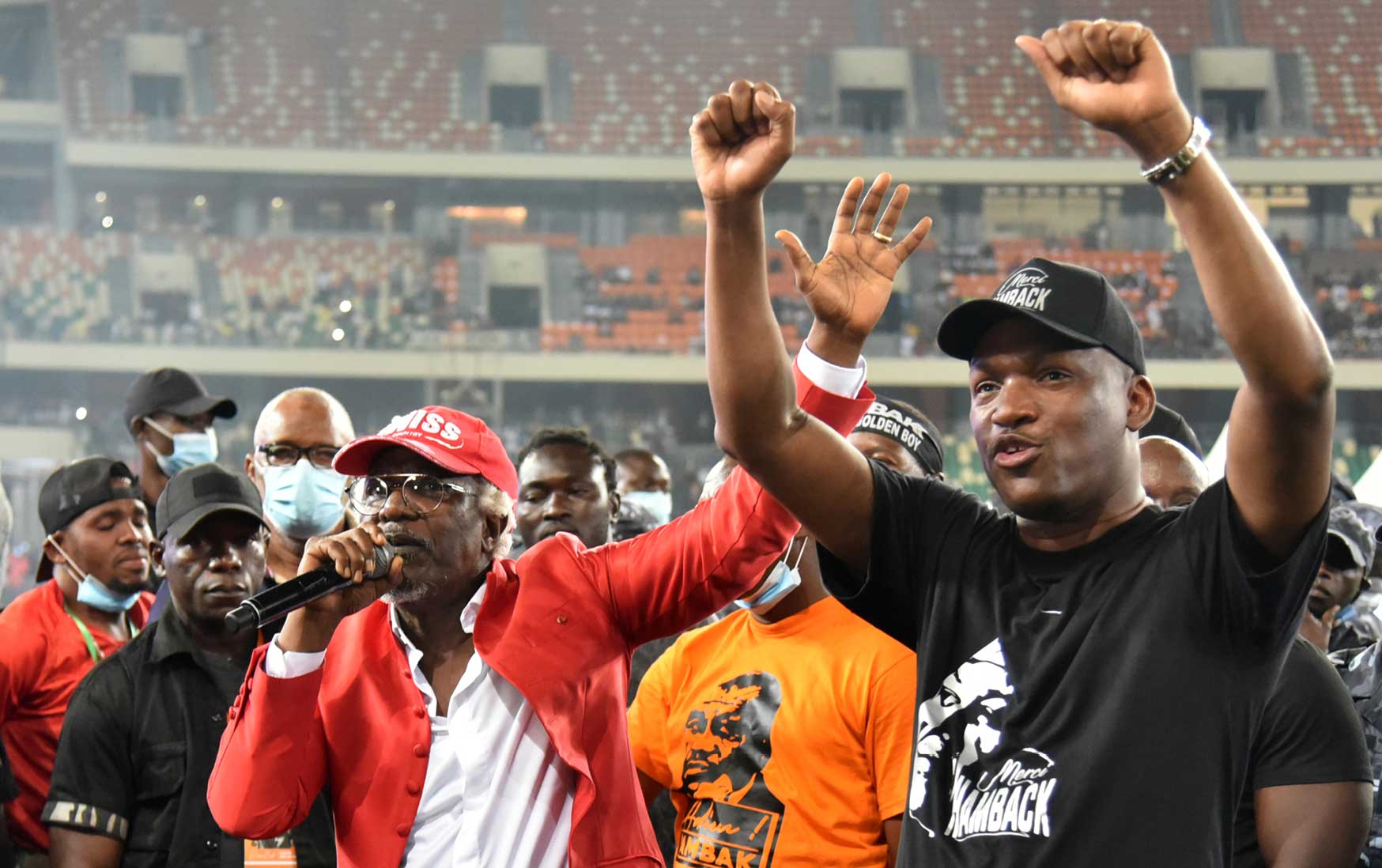
Ivorian reggae singer Alpha Blondy (L) sings with Ivorian Minister of Youth Promotion Mamadou Toure (R) during a concert in homage to late Ivory Coast Prime Minister Hamed Bakayoko, in Abidjan, March 2021. (Photo: Sia Kambou/AFP)
African youth have previously demanded the prioritisation of their interests, needs and voices through declarations and calls for action. At national, sub-regional and regional levels, there have been numerous calls for concrete action to deal with the scourge of youth unemployment and underemployment, climate change, youth inclusion in democracy and good governance, education, peace and security, skills development, entrepreneurship, health and lifestyle and adolescent youth health. In responding to these demands, the UNYO could consider first establishing Africa’s priorities for youth development before embarking on substantive programmes on the continent.
In conclusion, the UNYO is recommended to open channels up for African youth to their rightful space. Likewise, Africa – through the AU – is encouraged to put its house in order by empowering National Youth Councils to implement the charter.
Finally, the UNYO should not reinvent the wheel but rather support AU youth development programmes while capacitating the continent in tracking, monitoring, evaluating and reporting on youth programmes and initiatives.
Lennon has an academic background in International Relations and Politics and is a youth development policy expert in Africa. He holds a master’s degree in International Relations from the University of Witwatersrand, South Africa and is currently a PhD candidate at the University of Johannesburg.
Lennon joined the African Peer Review Mechanism Continental Secretariat as a Researcher in February 2017. The APRM is a specialised agency of the African Union (AU) initiated in 2002 and established in 2003 by the African Union in the framework of the implementation of the New Partnership for Africa’s Development (NEPAD). The mechanism is a tool for sharing experiences, reinforcing best practices, identifying deficiencies, and assessing capacity-building needs to foster policies, standards and practices that lead to political stability, high economic growth, sustainable development and accelerated sub-regional and continental economic integration.
Lennon is the officer responsible for organizing the APRM International Youth Symposium and civil society engagements at the APRM Continental Secretariat. He has led the teams responsible for the 1st APRM International Youth Symposium in Chad, N'djamena (2019), the 2nd Symposium in Kenya, Nairobi (2021) and the 3rd Symposium in Uganda (2022). Lennon formed part of the 2nd Generation APRM Country Review teams of the Republic of Uganda (2018) and the Republic of Namibia Targeted Review on Youth Unemployment (2019).
Lennon is a dedicated, committed individual who is driven by the Pan-African philosophy. Since the start of his professional career, Mr Monyae has been working to promote good governance on the African continent through various initiatives such as volunteering in various NGOs and Non- Profit Organizations, fundraising and awareness campaigns.
He has authored various book chapters, journal articles and newspaper articles on topics related to African democracy and good governance. In his spare time, Lennon is a professional cyclist having competed in the Race to the Sun a 160 km gravel and mountain bike journey from Hartbeespoort Dam to Sun City and the Virgin Active 947 Ride Joburg.

